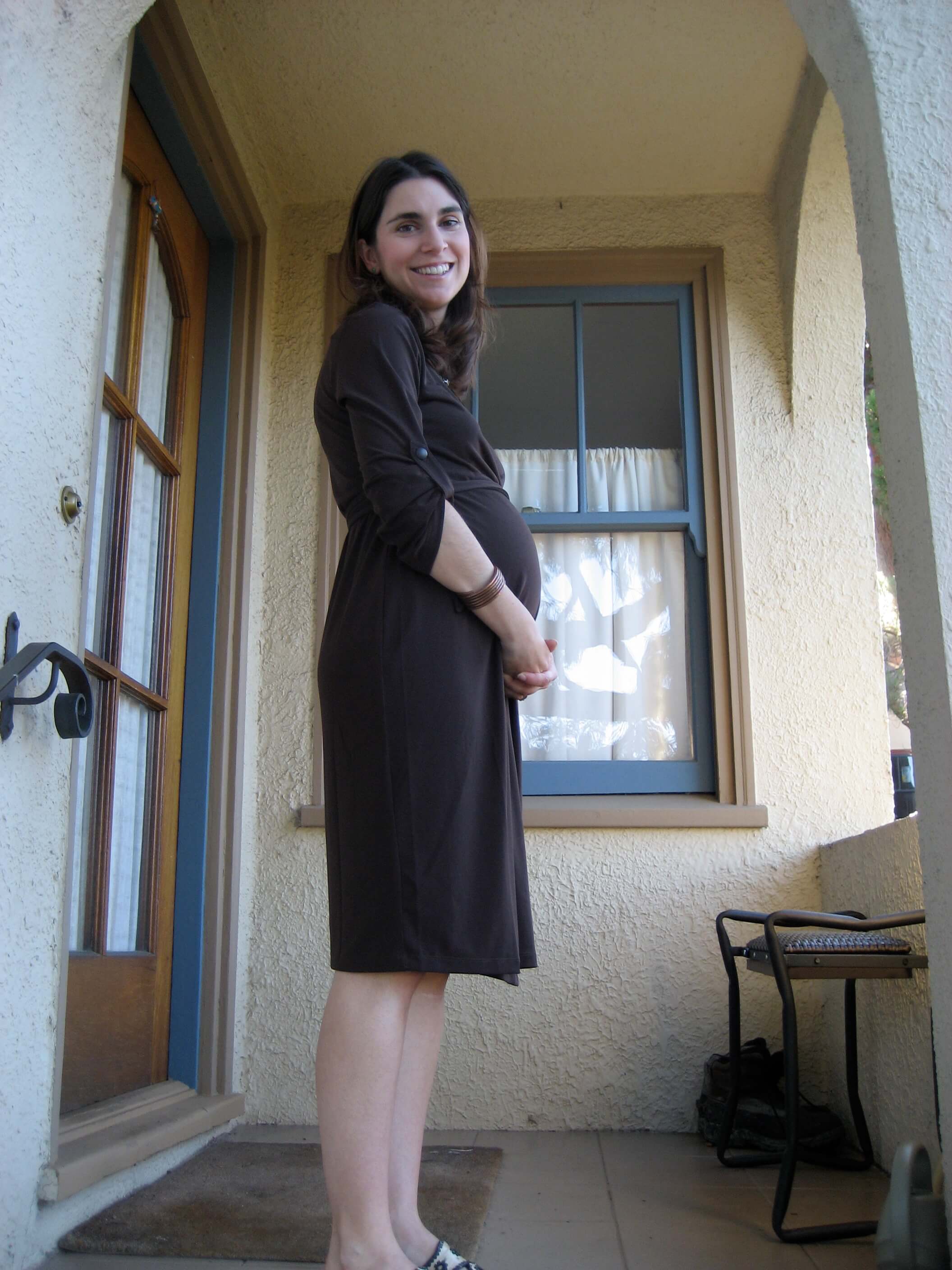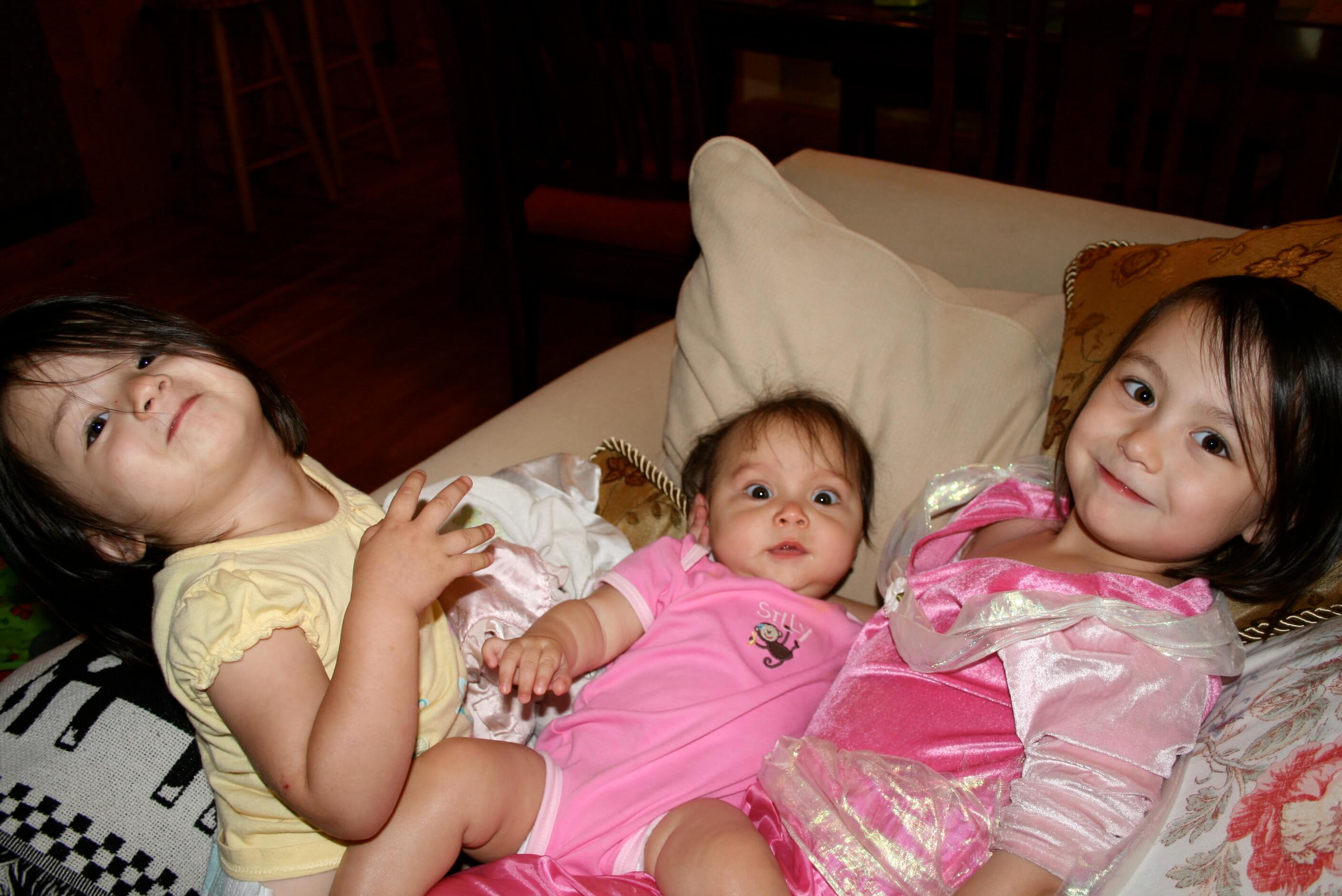
Every so often, a childless friend asks me some version of a question that boils down to: Why should I consider having kids?
They’re probably asking me this because, as somebody who cranked out three kids in under four years, I would seem to be a natural advocate for motherhood. In reality, I am a terrible saleswoman.
First, I think that kids, like marriage or a liberal arts education, are not something you should have to be talked into. If the idea didn’t originate with you, just leave it alone — it’s not worth it.
And second, when it comes to parenthood, there’s not much to sell; from the outside, it looks terrible. Before I started having babies, I actually wrote a book — that’s right, a book — about my ambivalence towards parenthood. This was largely in response to the crazed, competitive parenting that was sweeping through New York City at the time, but I doubt I’d disagree with much of what I found unappealing about parenthood then if I re-read my manuscript today. I often tell newly pregnant friends — those with a sense of humor, at least — to make sure that they shop for clothes in actual stores, go to dinner and a movie, eat brunch, and read a book in a cafe, because all these things will seem like absolute luxuries for the next decade or so.
So, why did I have kids? Given that we have three, I suppose it’s a question that bears some consideration. To be honest, it started when my husband and I just reached a point where we threw up our hands and said: Why not give this a shot and see what happens? So we gave it a shot, and about nine months later Fiona arrived. (Please know that I do NOT take that previous sentence lightly. To try for a baby and get a healthy one — not one, but three — is a blessing that I still can’t comprehend. I know that there are many women who desperately want to become mothers, who would kick my butt at motherhood, and who, for some reason, struggle to have a baby. This is terribly unfair and one of those things in life that I’ll never fully understand. But that’s a topic for another time.)
So there we were with one baby. Parenthood experiment: successful. Life: good. Why go on to have two more babies in such rapid succession? Aside from some happy post-pregnancy hormones that may have clouded my judgement just a tad, my personal reasons for having children can be divided into three categories, which I’ll call Me, We, and They.
ME: Once upon a time, I was a 20-something living in New York City. I had a seemingly endless amount of time to wander around the city shopping and reading books in coffee shops. I was miserable. Now I have three small children; never in my life have I been so bone-crushingly exhausted, with less time to myself, as I have since I became a mother. But never in my life have I been happier. (Please note that by “happier,” I do not mean “Motherhood is easy!” or “Motherhood is always fun!” or “I’m always so happy!” I’m talking average emotion over time.) How is this possible?
I believe that I’m happier now because I have less time for myself. Time for myself naturally led to a tendency towards self-absorption; and self-absorption naturally led to depression. If the only person I had to think about was me, all of my problems seemed exponentially important — any little dissatisfaction became catastrophic. Marriage helped with this, but in marriage your partner is (hopefully) a self-sufficient and autonomous person. Motherhood brought this pattern to a screeching halt. It is very, very difficult — not impossible, but very, very difficult — to be totally self-absorbed as a mother. When you are responsible for all the needs of one or two or three little people, you just can’t be thinking about yourself all the time. You have to think about feeding, diapering, entertaining, and loving these little ones who are entirely dependent on you. And at the end of the day, you may have done nothing that the childless you would want to do, but you’ve done a whole lot to love other people. And not much is happier than getting out of yourself and loving others.
WE: Having children added a third dimension to our marriage. Don’t get me wrong: our marriage relationship comes FIRST (and we’re trying to make our children understand that). And I do not think that it’s necessary to have children in order to have a fabulous marriage. There are childless couples whom I admire immensely; they have amazing marriages and lives, and not having children frees them up to do things that I can’t even consider for at least another eighteen years. But parenthood has forced us to work together in entirely new ways; in order for our family to function, we need to clearly divide household chores, figure out our parenting goals, agree on a discipline strategy, set family traditions. And above all, we need to KNOW WHAT WE BELIEVE, because kids start asking about God and death and love a whole lot sooner than I expected. In other words, having children crystallized our family culture.
“We” also influenced our decision to have more than one child. I’m an only child, and that’s okay. But our girls are learning valuable lessons about sharing, fighting, and loving earlier than I did. And every time a child joins our family, more love is added; all of our hearts expand a little bit more to love this new person, and they contribute their own love to the mix. It’s a whole lot of fun.
Of course, it’s not all a big love fest. I recently saw the movie The Descendents, in which the George Clooney character compares his family to the Hawaiian islands — everybody separate, but connected by the bond of statehood. I think that’s right on, for any family. Each member of our family is a unique individual, but we have to figure out how to live together. Interacting with any other family member is kind of like stepping onto an unexplored island; its beauty can take your breath away, but it’s also filled with unknown dangers and pitfalls, so you have to step carefully. You have to slowly learn the terrain, you have to respect it, and you may even have to learn a new language. In this way, a family is an outstanding training ground for dealing with the rest of the world — for our girls, and for ourselves.
THEY:
A family isn’t an exclusive and isolated group — I believe that’s called a cult. A family presses out into the world, and that’s where the “They” aspect comes into play. A major part of childbearing has always been future-oriented; you have children to perpetuate your genes, to carry on after you’re gone. I used to dislike this idea — it seemed too cold, too “survival of the fittest.” But now, probably because I’m older, I no longer see it that way. There’s something deeply meaningful about birthing a new person who is partly you, but completely separate. Somebody who will (who has to!) listen to your stories, to absorb what you’ve learned. And the best part of all: somebody who has a chance to do life better than you did, who might even change the world in positive ways.
That may sound delusional. I know that we can teach our children everything we know and pray for them and try to set them on a good path, but we can’t control them. Sometimes they don’t do life better than we did. (This is another unfair thing that I don’t understand.) Furthermore, when I say “somebody who might change the world,” I’m not talking about power or prestige. I don’t expect (or even want) our daughters to be wealthy or powerful or famous. But if a child of mine brings even one other person joy, performs one selfless act of kindness, lives a simple life of love, then the world is changed for the better.
Maybe “delusion” is just a skeptical word for “hope.” And without hope, we die. If we don’t live under the hope that life has a meaningful purpose, that all people have the potential for beauty, that the world isn’t spiraling towards ultimate destruction, that one day everything wrong will be made right, that Love will win in the end — and that our children might make things better — then why bother having children? Why bother living?
In the end, I suppose children are about hope. Yes, you can have hope without having children. You can even have children without having hope, although that sounds pretty awful to me. And no, you should absolutely not have children if you don’t want to. (Most honest people who wanted children will tell you that, half the time, they’re not even sure they want them anymore.) Lord knows I’m not trying to convert anyone.
But that’s why I had kids.


Pingback: Why I Had Kids « THE PICKLE PATCH
This is such a great article. As a person who has no kids and has no romantic notions about it, I’ve been unable to relate to those in my life who think having children is the reason for life (more or less). I appreciate how balanced and honest you are here. Your joy in having kids is an encouragement to me. =)
Another great piece, Faith. My question to you if you can answer it is why you decided to have 3 and didn’t just stop at 2. I’m really struggling now to decide whether to go for #3. Maybe that’s the subject of another post but I’m curious.
That’s a GREAT question, Julie! And it may be a topic for another post, but I’m going to go ahead and answer now before I forget that you asked it 🙂
So, the decision to have #3 wasn’t particularly well thought out; it was based more on a gut feeling that we weren’t quite done yet. There was also a slight urgency to the decision, because we knew Erick would be graduating within the year and that we’d probably be moving. If we were going to have a third, our preference was to stick with the doctor and hospital that we knew.
And I’m so glad that we did. BUT here are a few things that I probably should have thought about a bit more:
1. We’re lucky that #3 was a girl; had she been a boy, we’d have to deal with new clothes and gear. Not a huge deal, but something I didn’t appreciate until I realized that I didn’t need a single new thing for this baby!
2. Having #3 makes #2 a middle child, creating the potential for all of those middle child issues. In our case, #1 and #2 are so close that I worry that #3 will never be able to break in. Either way, three children makes it easy for somebody to be the odd one out. Which gets me perilously close to thinking about #4 — and that’s just intense!
3. Overpopulation is a big problem, and with three children we’re no longer just replacing ourselves — we’re adding to the population. But I’m married to an economist and he tells me I shouldn’t worry about this. Just thought I’d throw it out there!
Okay, I hope that’s helpful, but it’s probably just confusing. I wish you well with your choice — it’s certainly not an easy one. How great to already have two kids, though! Either way, I’m sure you’ll have a happy family.
Pingback: I’ll Be Selfless in Just a Minute…. « THE PICKLE PATCH
Pingback: Sigh. | THE PICKLE PATCH